What Does Chlorine Do To Your Hair & How To Prevent Damage
A deeper look into the effects of this pool disinfectant on your lovely locks.
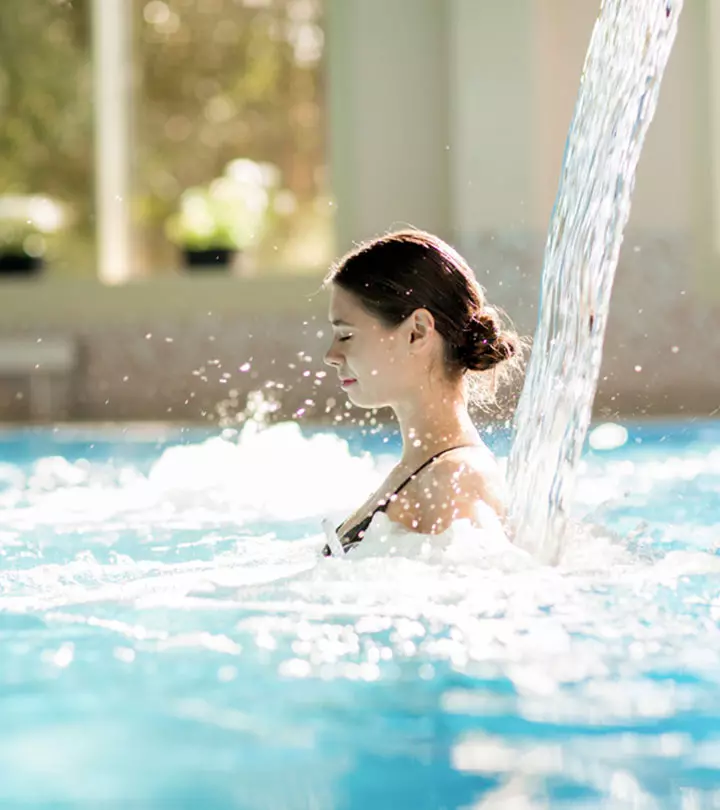
Image: Shutterstock
Most of us are aware that pool water contains chlorine (a common disinfectant). It keeps you safe from many infections. But what does chlorine do to your hair? Apart from killing bacteria in the water, does it also damage your hair? This article explores how chlorine affects your hair, how you can protect your hair from chlorine damage, and how to remove it from your hair. Keep reading.
In This Article
What Does Chlorine Do To Your Hair?
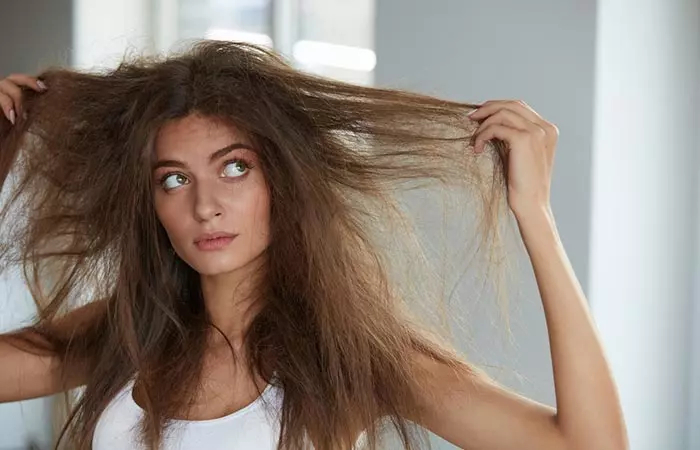
Chlorine sucks all the natural oils from your hair. It leaves your hair feeling dry, rough, and damaged. We are aware that our hair needs natural oils to remain healthy and shiny. But chlorine may make the hair brittle and dry as it strips your hair of these natural oils. It also may lead to split ends(1).
Chlorine may also lead to a change in hair color (2). But does it turn your hair green?
Key Takeaways
- The chlorinated water in the pool may make your hair brittle and dry, stripping your hair of natural oils.
- While swimming, oxidized copper in chlorine is absorbed by your hair, turning it green.
- Swimmers can protect their hair from chlorine and enjoy their experience more if they take the proper precautions.
Does Chlorine Turn Your Hair Green?

Swimmers usually observe their hair turning green after swimming. However, chlorine is not directly responsible for this effect. This change in hair color is caused by copper that has been oxidized by chlorine. Chlorine contains oxidized copper that is absorbed by your hair while you swim, eventually turning your hair green (1).
 Quick Tip
Quick TipIf you have colored or chemical-treated, dry, or damaged hair, then it is at higher risk for damage due to chlorinated water.
But you sure can protect your hair while swimming from the ill effects of chlorine. We have highlighted a few techniques in the following section.
How To Protect Your Hair From Chlorine Damage?
1. Wet Your Hair First
Wetting your hair before going into the pool can keep it from absorbing the water containing chlorine or other damaging salts. A cold water hair rinse before swimming can form a protective barrier against chlorine. A pre-rinse saturates the hair and makes it less likely to absorb chlorine.
2. Wear A Swim Cap
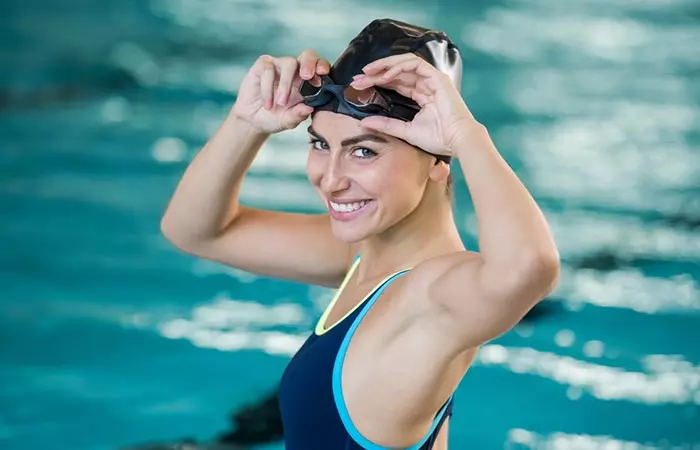
Keeping your hair from getting wet altogether can help. Wear a swim cap to ensure your hair does not come in contact with the chlorinated water.
3. Use A Leave-In Conditioner
A leave-in conditioner in your hair can prevent the absorption of chlorine in the water. It can help you prevent hair dryness and brittleness effectively. Apply a leave-in conditioner to your hair before going for a swim. You can also put on a cap after applying the leave-in conditioner. This will keep your hair from chlorine damage, and will also moisturize your hair (3).
4. Apply Oil
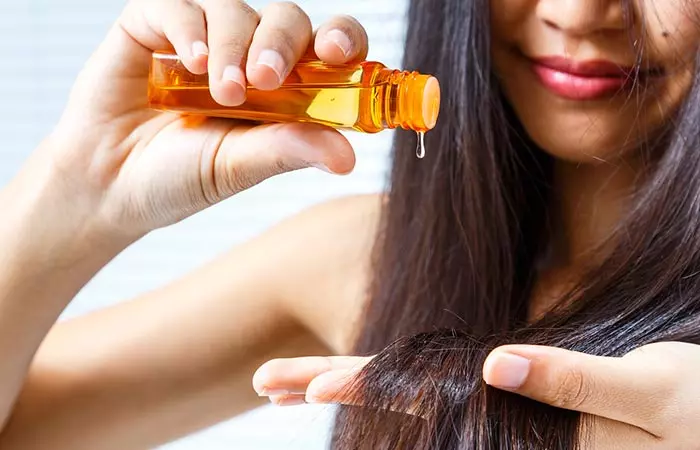
Oil is hydrophobic and repels water. Applying oil (like coconut oil) to your hair can help repel the chlorinated water and potentially prevent hair damage.
Anna, a YouTuber, shares her favorite tips for maintaining and caring for hair while swimming at the pool or beach. She emphasizes the importance of pre-swim care, including wearing a protective style like braids or buns with a bit of oil for added nourishment. She says, “I always like to put in a little bit of oil… any oil I have lying around. I always like to put just a few drops in my ends. This just helps to seal my cuticles and keep my hair nice and nourished and protected from the saltwater or from the chlorine, and it also just helps to keep my hair nice and soft afterwards (i).”
5. Use A UV Protectant Spray
Shield your hair from chlorine damage by using a UV protectant spray. This barrier minimizes chlorine’s harsh effects, preventing dryness and brittleness while preserving your hair’s health, shine, and color. The harmful UV rays and chlorine can damage the tresses tenfold; hence, always remember to apply the product before swimming for optimal protection.
 Quick Tip
Quick TipUse a gentle sulfate-free shampoo for hair washing after swimming, opt for outdoor pools, and follow a post-swim hair care routine to protect your hair from chlorine damage.
Apart from the methods discussed above, exploring more tips and ways regarding how to protect your hair when swimming can help protect your mane from chlorine damage. Also, it is important to understand that these are not foolproof methods. Your hair may still come into contact with chlorinated water despite your best efforts. Well, what should you do then?
How Do You Get Chlorine Out Of Your Hair?
1. Wash Your Hair Immediately
Washing your hair immediately after swimming reduces any possible damage due to chlorine. You may wash your hair with specific shampoos meant for removing chlorine from hair.
2. Comb Your Hair
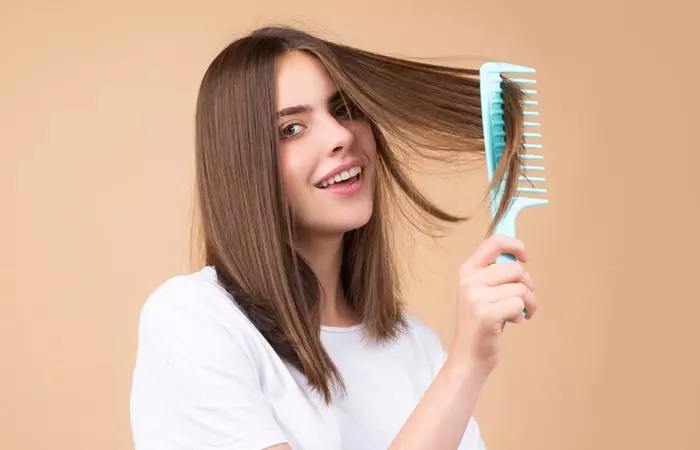
Brush/comb your hair with a wide-toothed comb after washing your hair. However, ensure you do not comb through wet hair (as it can cause breakage). A wide-toothed comb can gently help untangle your hair.
3. Clarify Your Hair
Hair clarifying products help remove the harsh chemicals from your hair. You may use a clarifying shampoo to wash your hair right after you are out of the pool. You may also use an apple cider vinegar rinse. Make sure to follow up with a good conditioner to replace moisture in the hair.
4. Baking Soda For Hair
Anecdotal evidence suggests that baking soda can possibly help remove chlorine from hair. Create a paste with baking soda and water, apply it to your damp hair, and gently massage. Leave it on for a few minutes and rinse thoroughly. Follow up with your regular shampoo and conditioner. This may restore your hair’s natural balance.
5. Vitamin C For Hair
Some research supports the efficacy of vitamin C in neutralizing the chlorine in water (4). Some believe the nutrient may also potentially help eliminate chlorine from hair through the same mechanism. However, research is limited in this regard. You may still try using it on your hair after consulting with your doctor.
Crush vitamin C tablets into a fine powder, mix with water to form a paste, and apply it to your wet hair. Allow it to sit for a few minutes and rinse thoroughly. Follow up with shampoo and conditioner for optimal results.
Infographic: How To Clarify Your Hair Using A Sea Salt Scrub
Swimming is a fantastic way to tone your body and keep your mind relaxed. However, there’s one thing it’s not great for—your hair, thanks to all the chlorine in swimming pools. But that’s no reason to ditch your swim sessions. You can always clarify your hair afterward.
Check out this infographic for steps to clarify your hair using a simple salt scrub. Illustration: StyleCraze Design Team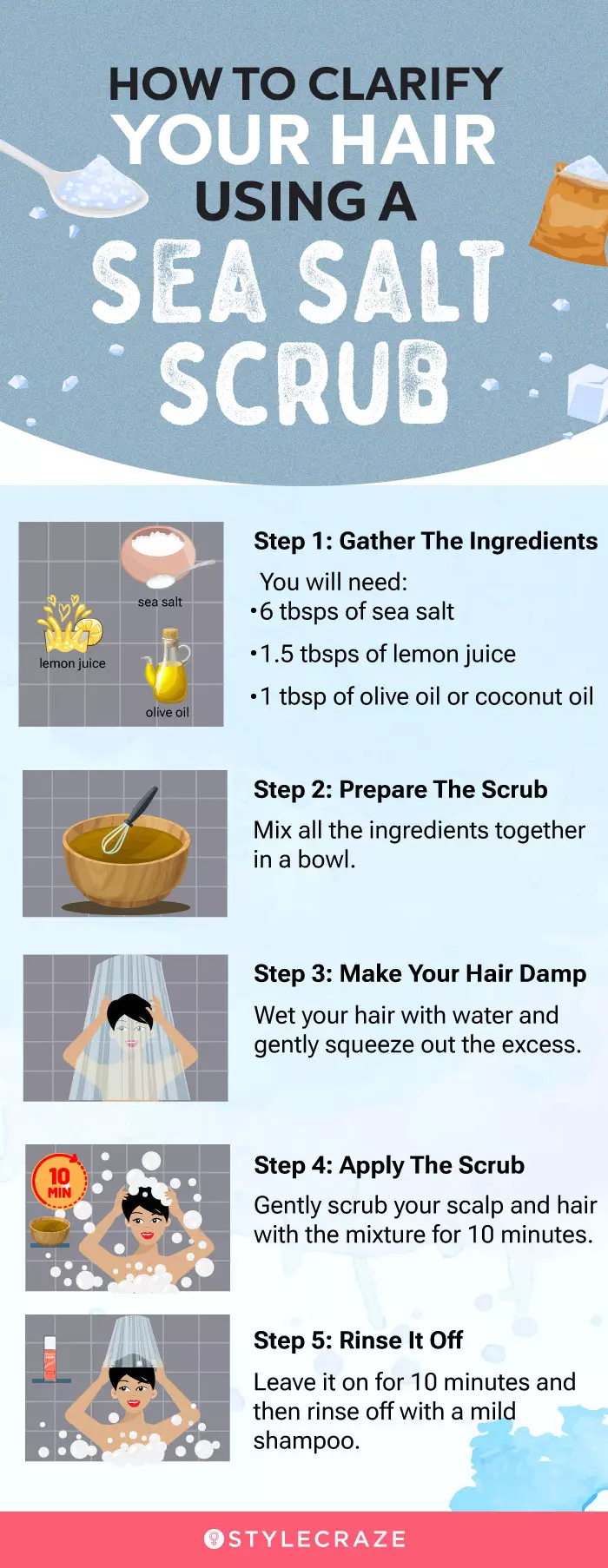
Chlorine is a disinfectant used in swimming pools to keep people safe from infections. However, it also strips your hair of its natural oils, leaving your hair brittle, lifeless, dry, and with split ends. While many swimmers claim chlorine turns their hair green, it is oxidized copper that results in changed hair color. You must wear a swimming cap and use a leave-in conditioner to protect your hair from chlorine. Additionally, wash your hair immediately after contact with chlorine or leaving the pool to keep your hair healthy.
Frequently Asked Questions
Does chlorine make your hair gray?
Chlorinated water causes hair discoloration (1). Therefore, it may turn dark hair gray.
Does chlorine turn brown hair blonde?
Hair discoloration can be caused by chlorinated water (1). Hence, chlorine may bleach your brown hair and make it blonde.
Can I color my hair if I swim regularly in chlorinated water?
It is not a good idea to color your hair when swimming in chlorinated water regularly as the chlorine can make your dye wear off quickly and even lead to brittle, dry, and greenish-gray hair.
Can I use a swimmer’s shampoo to prevent chlorine damage?
Yes, as a swimmer’s shampoos help deeply cleanse and remove buildup.
Discover different tips and tricks to protect your skin and hair from pool chlorine! Watch the video below to learn how to keep your skin and hair healthy while swimming.
Personal Experience: Source
StyleCraze's articles are interwoven with authentic personal narratives that provide depth and resonance to our content. Below are the sources of the personal accounts referenced in this article.
i. How I Protect My Hair When Swimminghttps://www.youtube.com/watch?v=t68t7IhMHLc
References
Articles on StyleCraze are backed by verified information from peer-reviewed and academic research papers, reputed organizations, research institutions, and medical associations to ensure accuracy and relevance. Read our editorial policy to learn more.
- Hair color damages caused by exposure to chlorinated water in the presence of ultraviolet radiation
https://www.researchgate.net/publication/236109930_Hair_color_damages_caused_by_exposure_to_chlorinated_water_in_the_presence_of_ultraviolet_radiation - CLEAR WATERS AND A GREEN GAS: A HISTORY OF CHLORINE AS A SWIMMING POOL SANITIZER IN THE UNITED STATES
https://acshist.scs.illinois.edu/bulletin_open_access/v32-2/v32-2%20p129-140.pdf - Hair cosmetics: An overview
https://www.ncbi.nlm.nih.gov/pmc/articles/PMC4387693/ - Using Vitamin C To Neutralize Chlorine in Water Systems
https://www.fs.usda.gov/t-d/pubs/pdf/hi_res/05231301hi.pdf
Read full bio of Tere Pruett
Read full bio of Anjali Sayee
Read full bio of Eshna Das
Read full bio of Krati Darak






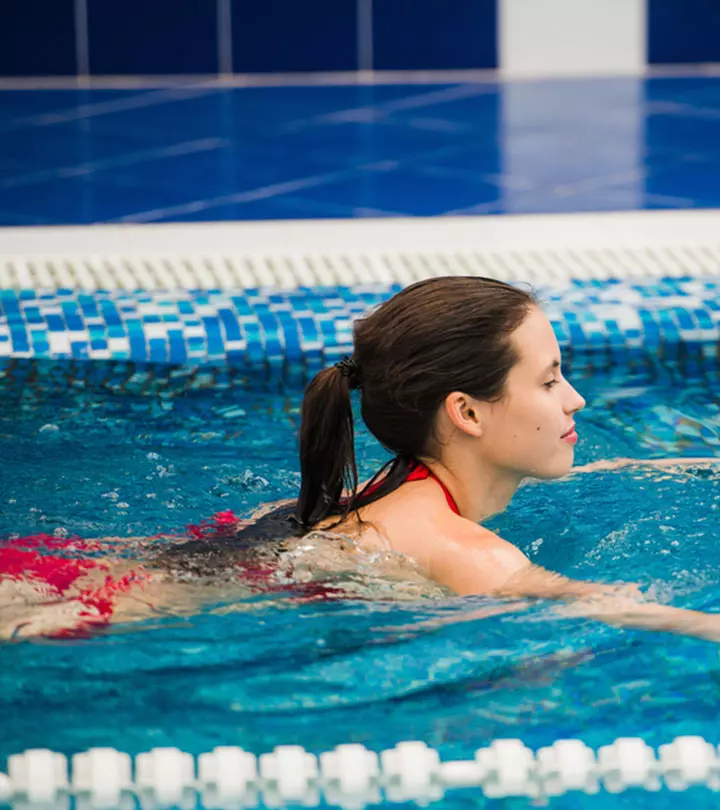
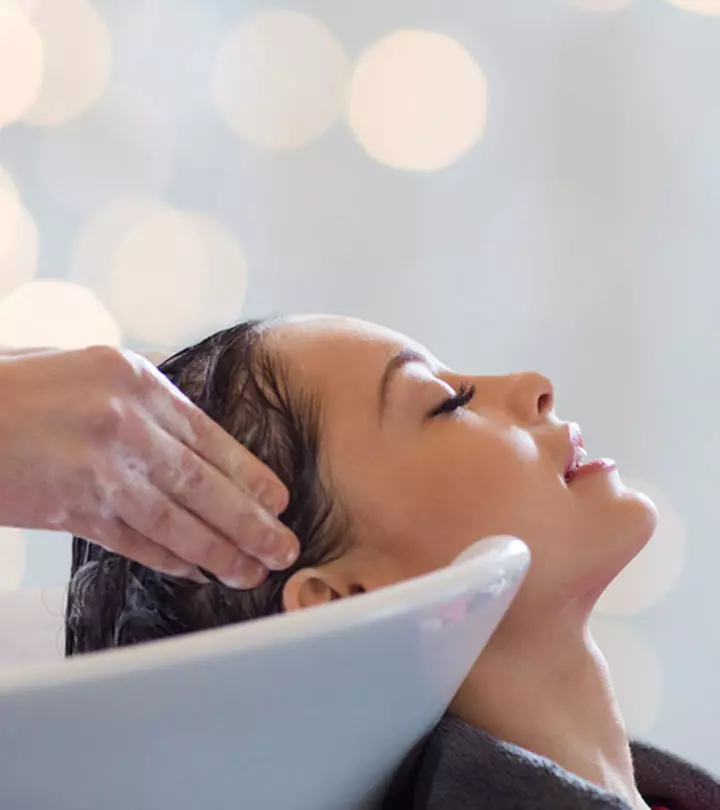
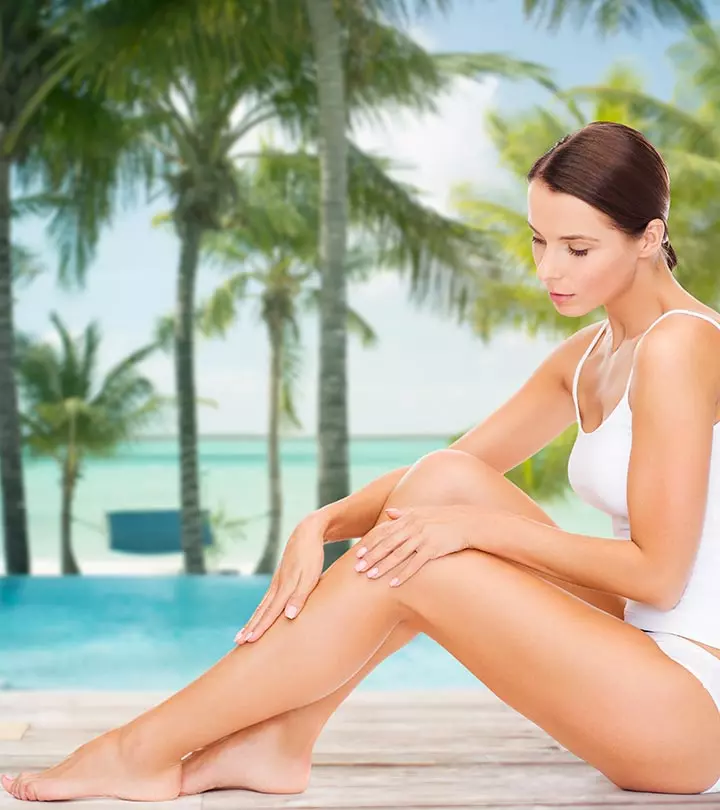
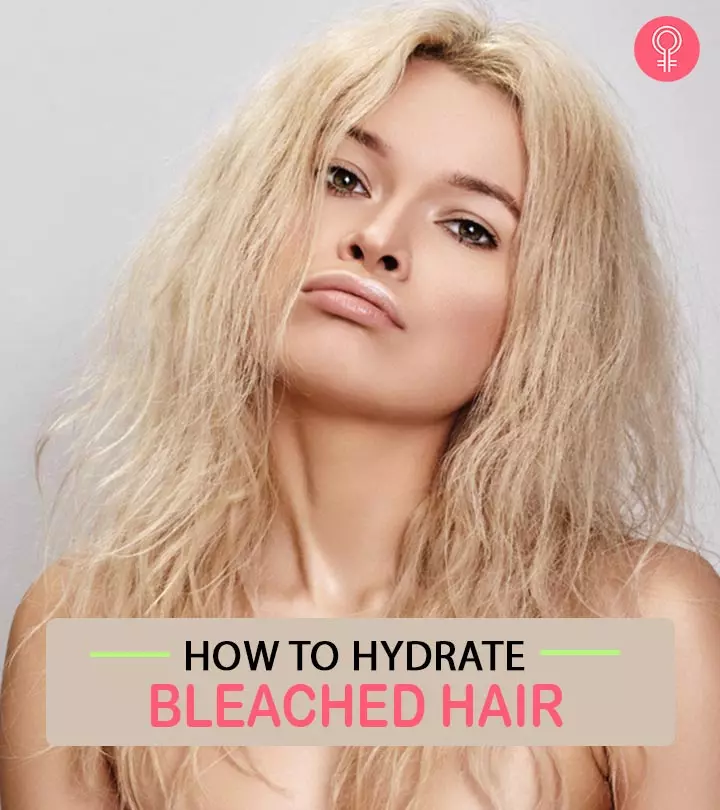
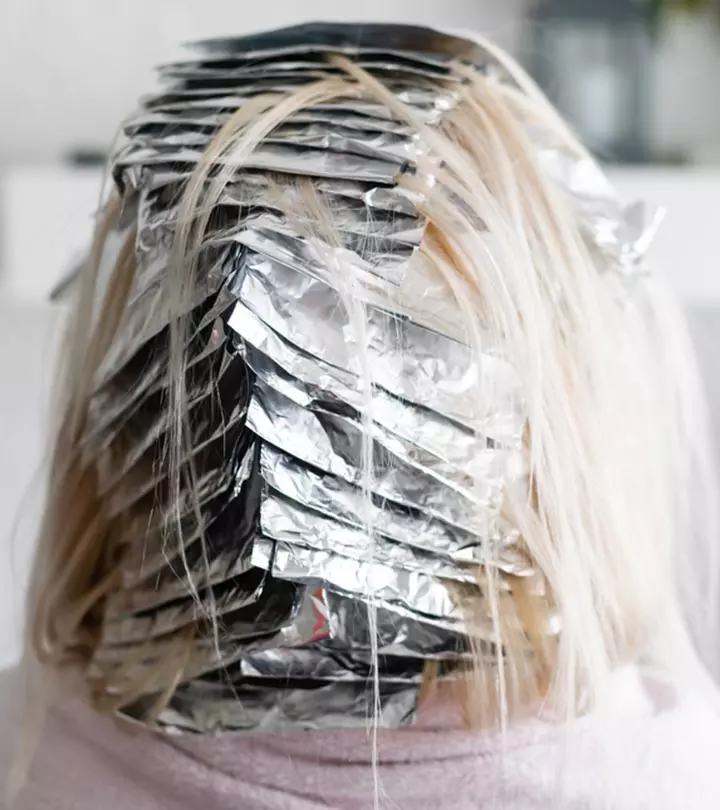
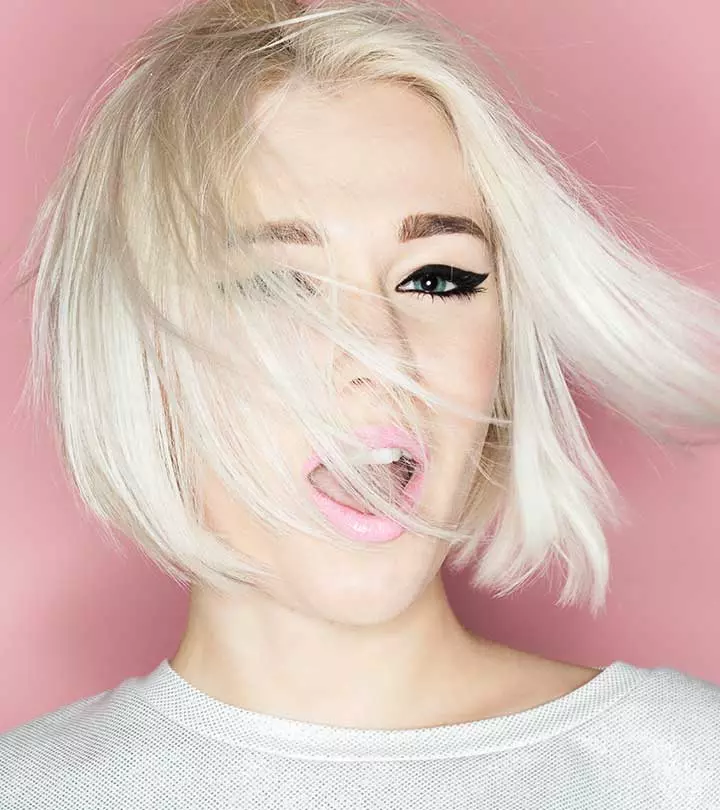
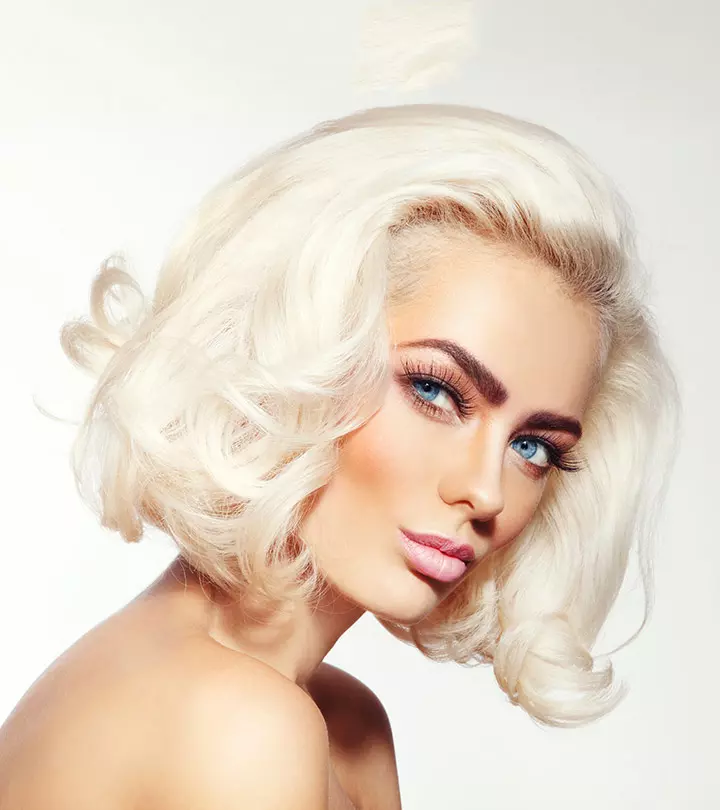
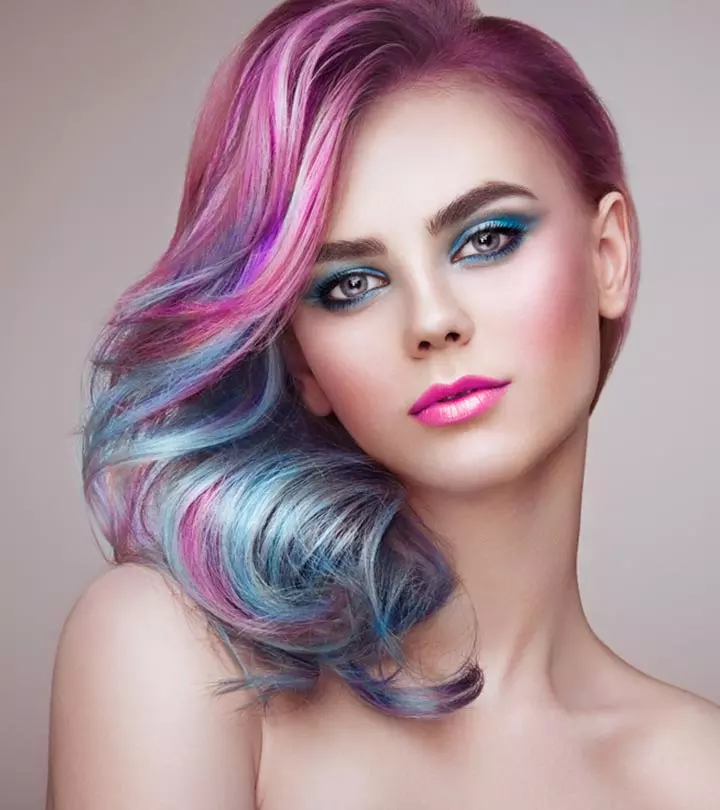
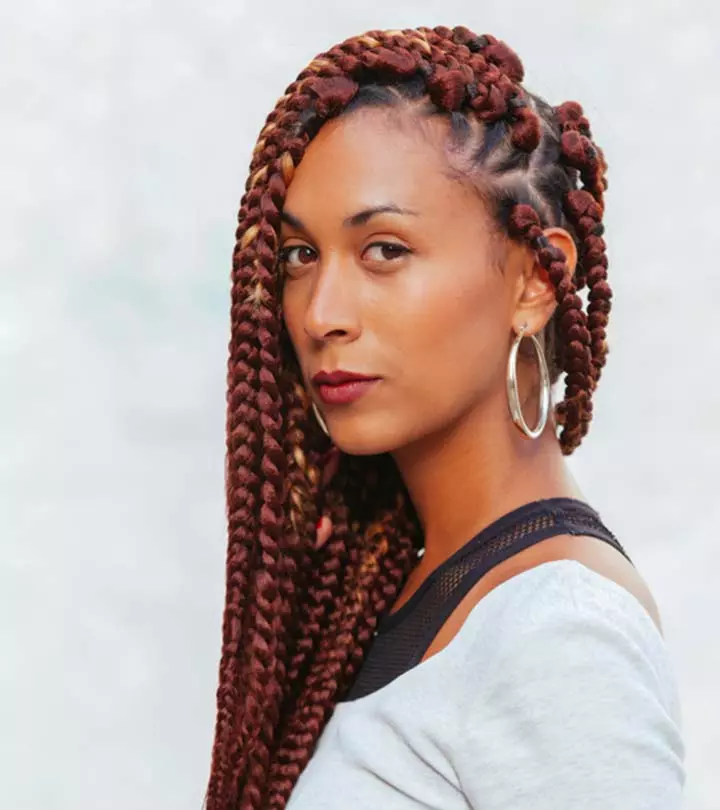
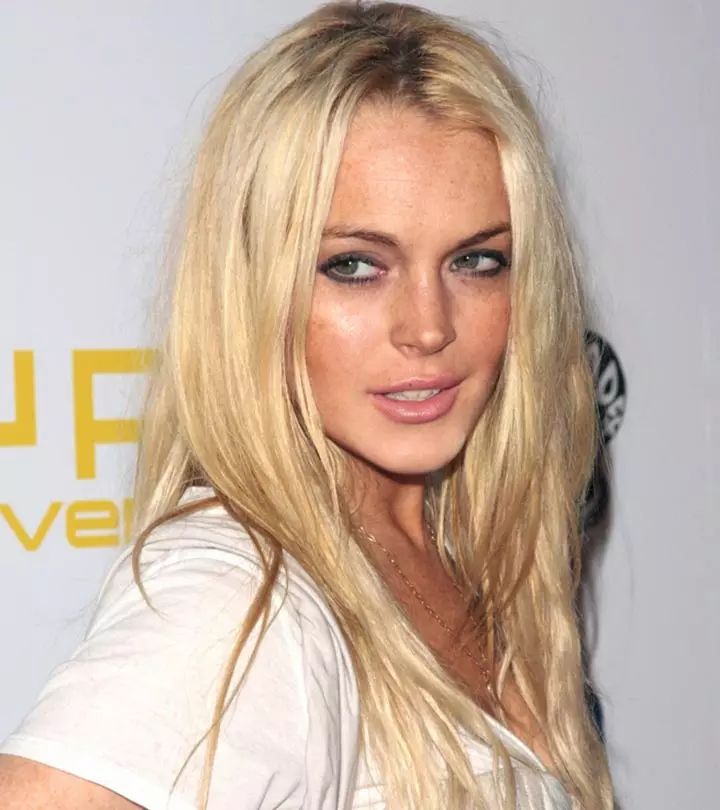
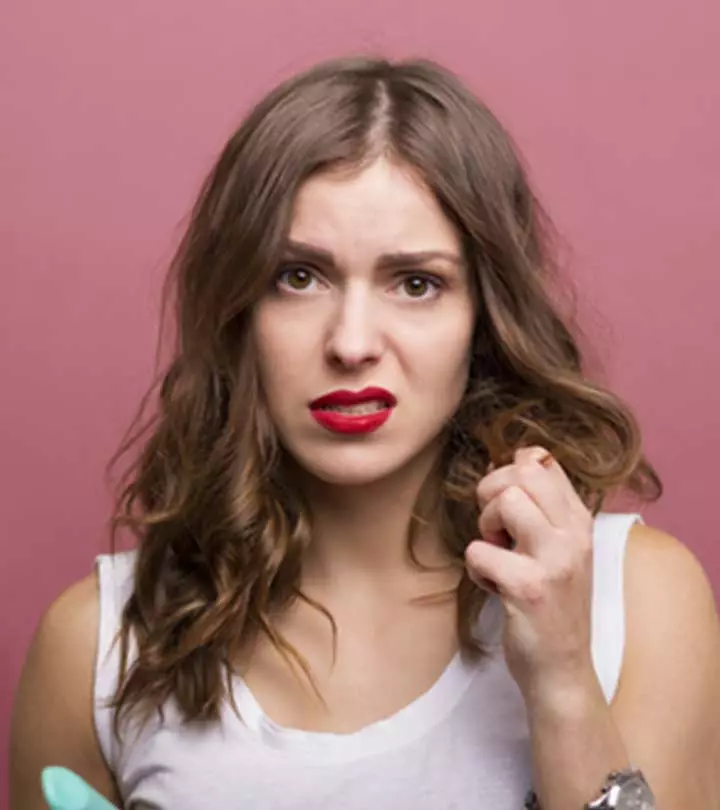
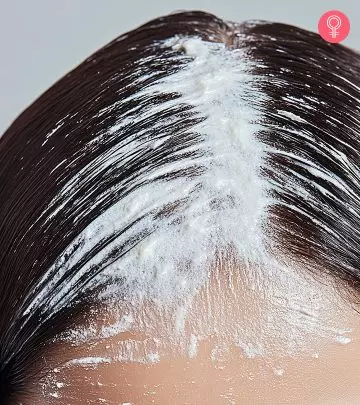
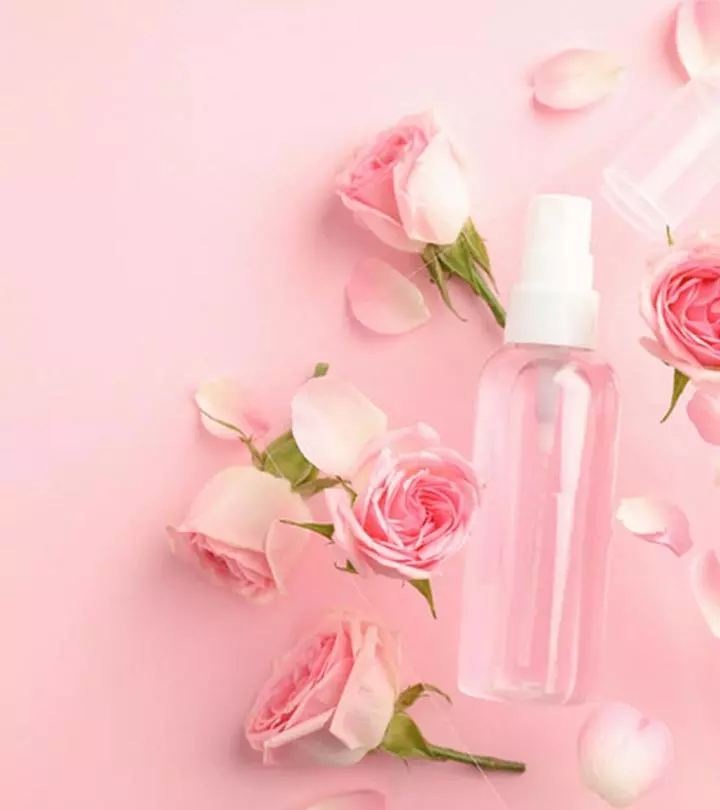
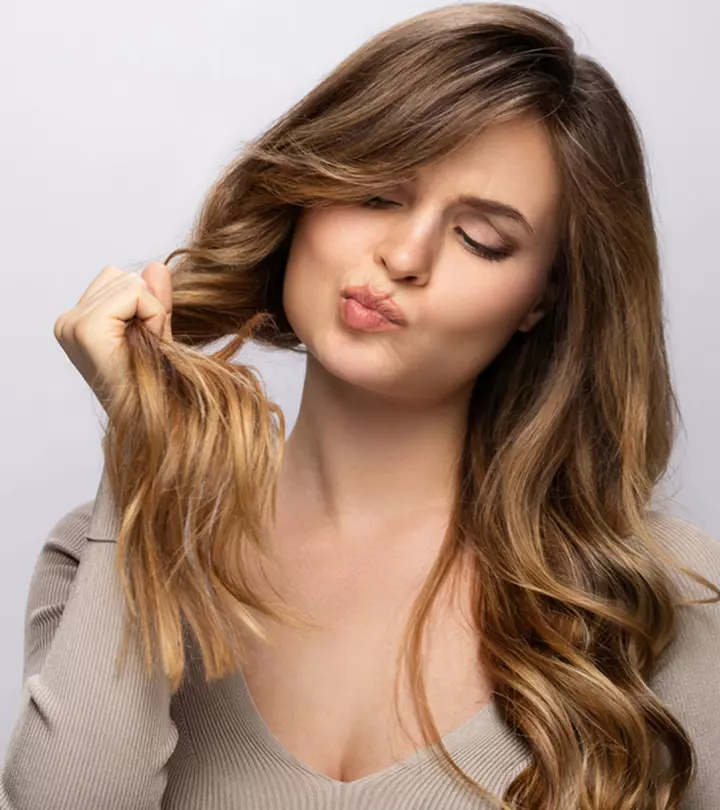
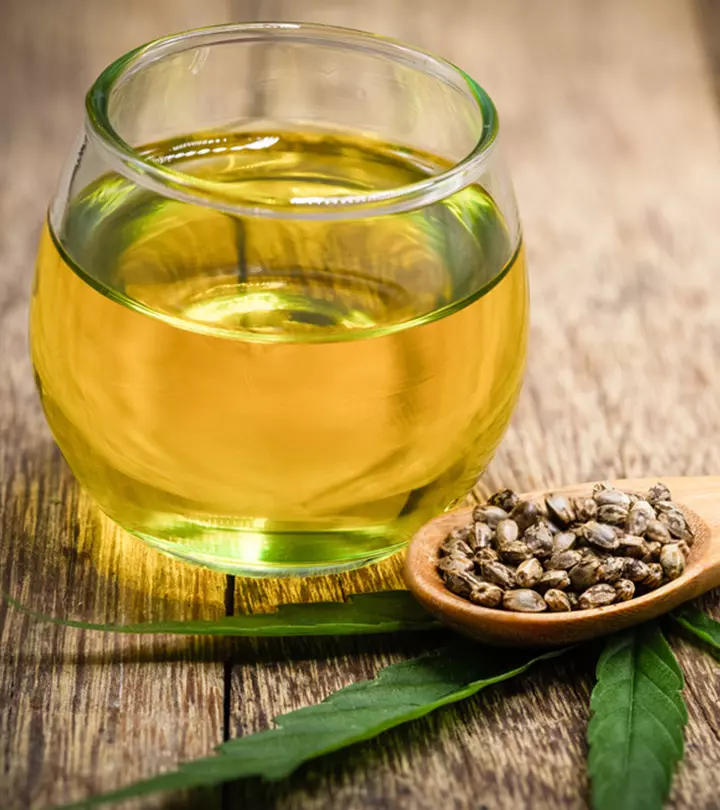
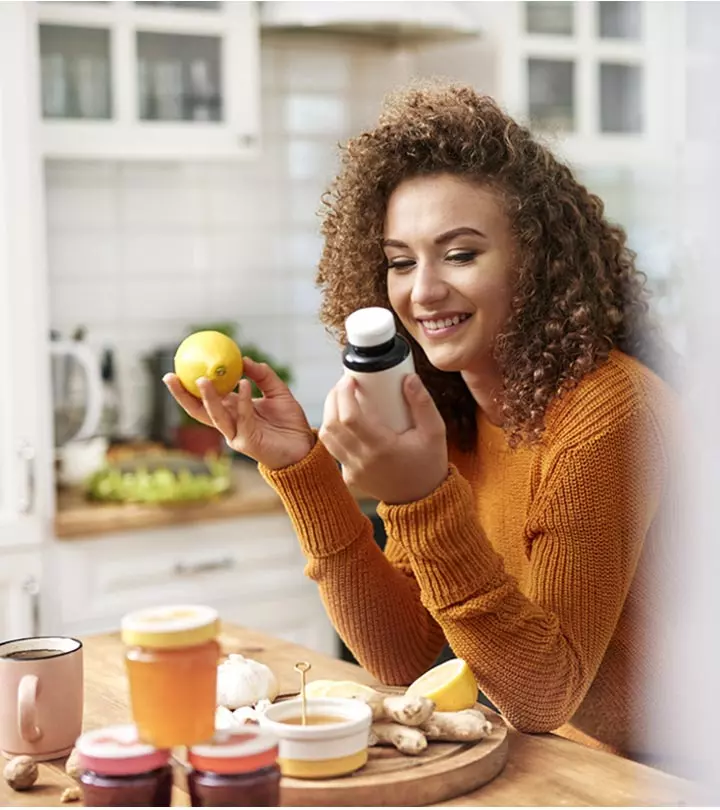
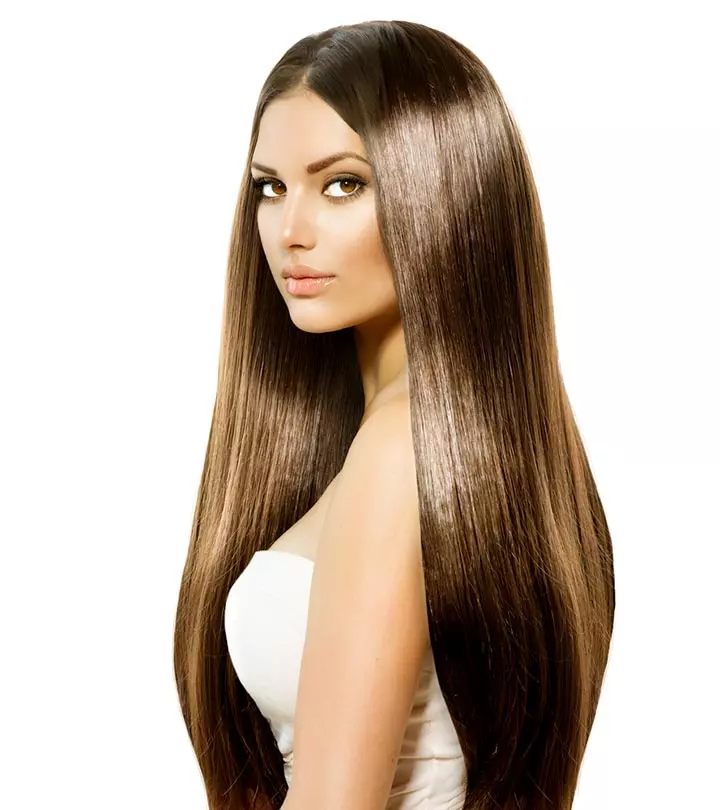


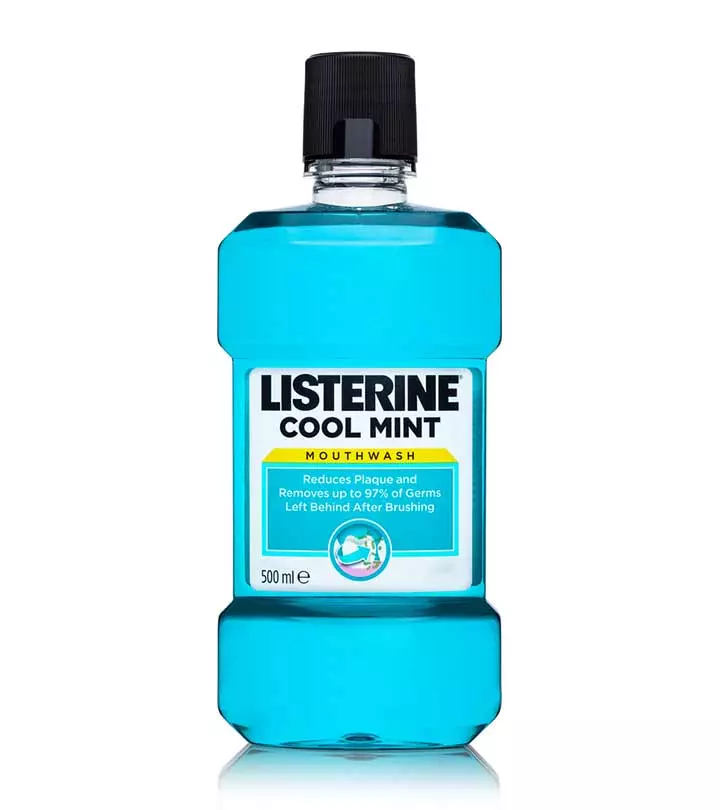
Community Experiences
Join the conversation and become a part of our empowering community! Share your stories, experiences, and insights to connect with other beauty, lifestyle, and health enthusiasts.